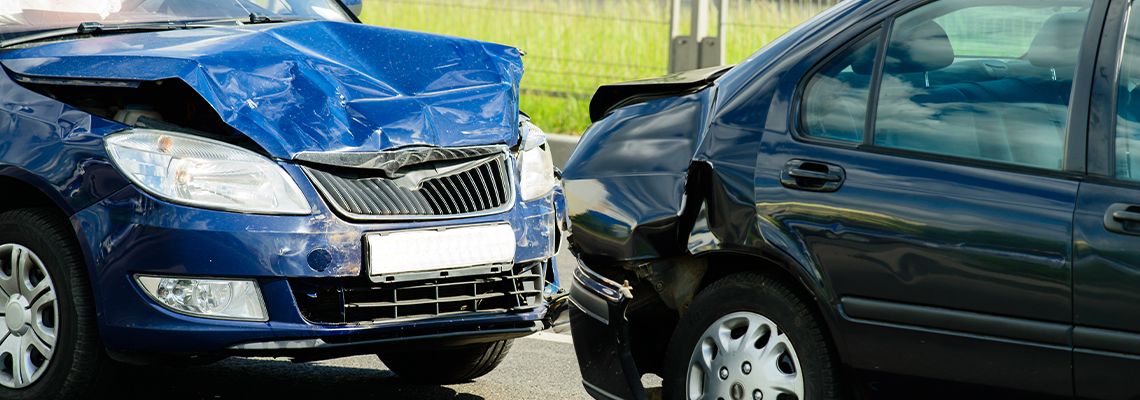
What To Do After Being Rear-Ended
Imagine cruising down the highway on your way to work when suddenly, out of nowhere, another car slams into the back of yours. It's a scenario many of us dread. Rear-end collisions can be jarring, leaving both you and your vehicle in a state of disarray. Knowing what to do next can make all the difference.
At the Law Office of Joshua S. Reed, we're here to lend a helping hand and guide you through these challenging times. Serving Knoxville, Farragut, Anderson County, Blount County, Union County, Maryville, Oak Ridge, Loudon County, and Clinton County, our firm offers personalized legal counsel tailored to your needs.
We believe everyone deserves competent representation, especially after an unexpected event like a rear-end collision. Here's what you should do after being rear-ended.
Assess the Situation
After any accident, your safety should come first. If possible, move your vehicle to a safe spot away from traffic. Turn on your hazard lights to alert other drivers. It's important to remain calm and assess the situation without exacerbating any injuries.
While checking for injuries, remember that some symptoms may not be immediately evident. Once you're sure it's safe, exit your vehicle and check on the other driver and any passengers involved. If anyone appears injured, call emergency services without delay.
Contact Emergency Services
Even if the accident seems minor, it is advisable to contact the police. A formal accident report can be crucial later when dealing with insurance companies or legal matters. When the officers arrive, provide them with accurate information regarding the incident. Avoid speculating or admitting fault.
Emergency medical responders can also evaluate any injuries at the scene. Their documentation might prove valuable should you need to file a claim or pursue legal action down the line.
Exchange Information with Other Drivers
While waiting for the authorities, exchange details with the other driver. Collect their name, contact information, driver's license number, and insurance details. If there are any witnesses, gather their contact information too. Witness statements can reinforce your case if disputes arise.
Document everything about the accident scene. Take photos of both vehicles, capturing damages, license plates, and any relevant road signs or signals. These images can serve as evidence for your claims.
Notify Your Insurance Company
Timely notification of your insurance company is critical. Provide them with accurate details of the accident and any documentation you've gathered. Many policies require prompt reporting, so don't delay this step.
Clarify with your insurer about the coverage and possible next steps. They may require additional documentation or an inspection of the damage. Keep all communication records with your insurer for future reference.
Seek Medical Attention
Even if you feel fine, it is wise to undergo a medical evaluation after the collision. Some injuries, like whiplash or concussions, might not manifest immediately. A thorough examination can identify hidden injuries and ensure prompt treatment.
Medical records can also strengthen your claim should you decide to seek compensation for medical expenses or lost wages due to the accident. Your health and well-being should always be a priority.
Explore Repair Options
Once you've dealt with immediate concerns, consider your vehicle's repair needs. Obtain estimates from reputable auto repair shops in Knoxville or surrounding areas. Share these with your insurance company to expedite the claims process.
If your vehicle is deemed a total loss, your insurer will guide you through the steps to receive fair compensation. Stay informed about your policy's terms and conditions to avoid unexpected surprises.
Rear-End Collision Laws in Tennessee
Understanding state laws will influence how you approach post-accident procedures. Here are three key points regarding rear-end collision laws in Tennessee:
Fault-Based System
Tennessee operates under a fault-based insurance system. This means the driver found at fault for the collision is responsible for covering the damage. In rear-end collisions, the driver who strikes the vehicle in front is typically presumed to be at fault, unless they can provide evidence to the contrary.
Comparative Negligence
Tennessee follows a comparative negligence rule, which allows for the possibility that multiple parties may share fault in an accident. If you are found to be partially at fault, your compensation may be reduced by your percentage of fault. For example, if you are determined to be 20% at fault, you could only recover 80% of the total damages.
Statute of Limitations
In Tennessee, individuals have one year from the date of the accident to file a personal injury lawsuit. Failing to initiate legal action within this timeframe can result in the loss of your right to seek compensation for damages.
Personal Injury Attorneys in Knoxville, Tennessee
At the Law Office of Joshua S. Reed, we pride ourselves on offering dedicated, personalized service to our clients. We focus on a manageable number of cases to ensure each client receives the attention and diligence they deserve. We're committed to standing by your side, offering tailored representation, and advocating fiercely for your rights. If you are in Knoxville, Tennessee, Farragut, Anderson County, Blount County, Union County, Maryville County, Oak Ridge County, Loudon County, or Clinton County, call us for a consultation—our team is here to support and guide you when you need us most.

